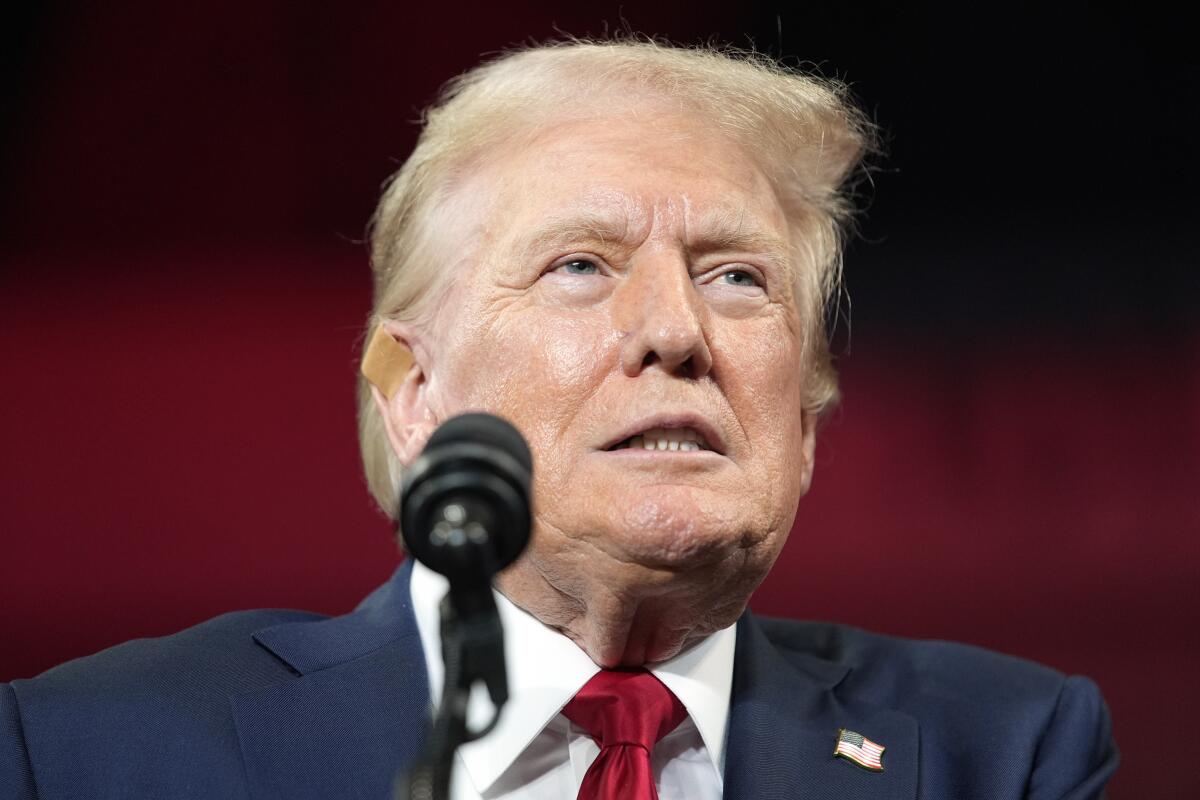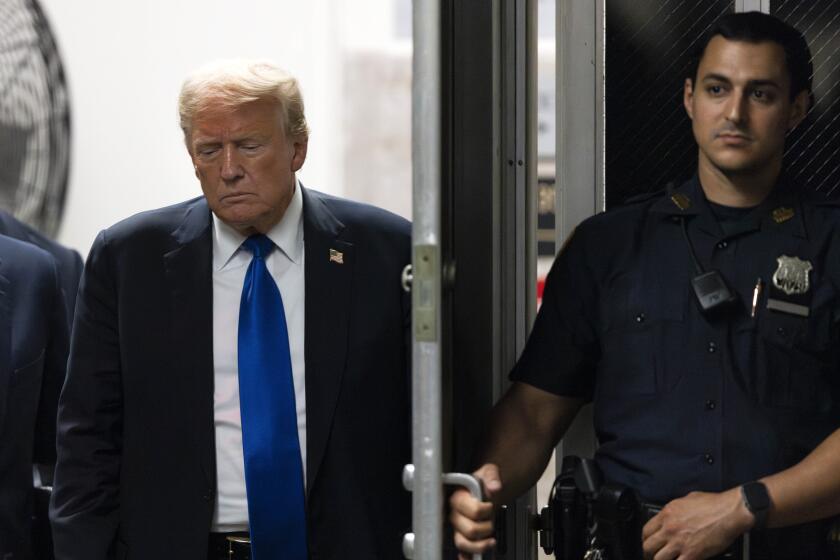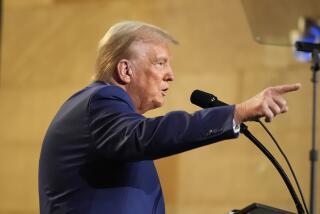Prosecutors urge judge not to toss out Trump’s hush money conviction on immunity claim

NEW YORK — Prosecutors are urging a judge to uphold Donald Trump’s historic hush money conviction, arguing that the verdict should stand despite the Supreme Court’s recent ruling on presidential immunity.
The Manhattan district attorney’s office said in court papers that the Supreme Court’s opinion “has no bearing” on the hush money case because it involves unofficial acts for which the former president is not immune.
“This case involved evidence of defendant’s personal conduct, not his official acts,” prosecutors wrote in a 66-page filing made public Thursday.
They contend that there is “no basis for disturbing the jury’s verdict.”
The Republican presidential nominee is trying to get the verdict — and even the indictment — tossed out because of the high court’s July 1 decision.
The ruling curbs prosecutions of ex-presidents for official acts and restricts prosecutors from pointing to official acts as evidence that a president’s unofficial actions were illegal.
Trump’s lawyers have argued that prosecutors rushed to trial instead of waiting for the Supreme Court’s presidential immunity decision, and that the trial was “tainted” by evidence that should not have been allowed under the high court’s ruling, such as testimony from some Trump White House staffers and tweets he sent while president.
Jurors deliberated for 9½ hours over two days before convicting former President Trump of all 34 counts he faced in a hush-money scheme surrounding the 2016 election.
Prosecutors countered that the Supreme Court ruling doesn’t apply to the evidence in question, and that regardless, it’s “only a sliver of the mountains of testimony and documentary proof” that the jury considered before reaching its verdict May 30.
In a letter Thursday to trial Judge Juan M. Merchan, Trump lawyer Todd Blanche said the prosecution filing contains “several legal and factual misrepresentations,” and asked for permission to file a 30-page response next week.
The Supreme Court ruled about a month after the jury found Trump guilty of falsifying business records to conceal a deal to pay off porn actor Stormy Daniels shortly before the 2016 election.
At the time, she was considering going public with a story of a sexual encounter with Trump from a decade earlier.
The Republican denies her claim, maintains he did nothing wrong and says the case is politically motivated; he has repeatedly criticized Manhattan Dist. Atty. Alvin Bragg, a Democrat.
The Supreme Court ruled that former President Trump cannot be prosecuted for his official acts while in office.
Trump was a private citizen — campaigning for president, but neither elected nor sworn in — when lawyer Michael Cohen paid Daniels.
But Trump was president when Cohen was reimbursed, and Cohen testified that they discussed the repayment arrangement in the Oval Office.
Prosecutors say the reimbursements to Cohen were misleadingly logged as legal expenses in Trump’s company records.
Merchan is due to rule Sept. 6 on Trump’s request to overturn the verdict and dismiss the indictment. Trump’s sentencing is set for Sept. 18, if the verdict stands.
The sentencing, which carries the potential for anything from probation to up to four years in prison, was initially set for mid-July.
But within hours of the Supreme Court’s ruling, Trump’s lawyers persuaded Merchan to delay it.
The Supreme Court did not define what constitutes an official act, leaving that matter to lower courts. Indeed, even the conservative justices responsible for the majority opinion differed about what is proper for jurors to hear about a president’s conduct.
In a separate concurring opinion, Justice Amy Coney Barrett wrote that the Constitution does not require juries to be blinded “to the circumstances surrounding conduct for which presidents can be held liable” and suggested that it would needlessly “hamstring” a prosecutor’s case to prohibit any mention of an official act in question.
Even before his big Supreme Court win, Trump promised to be ‘dictator for one day.’ Will the ruling embolden him further?
Before the Supreme Court ruling, Trump’s lawyers brought up presidential immunity in a failed bid last year to get the hush money case moved from state court to federal court.
In rejecting the move, U.S. District Judge Alvin Hellerstein wrote that “hush money paid to an adult film star is not related to a president’s official acts.”
Later, Trump’s lawyers beseeched Merchan to hold off the hush money trial until the Supreme Court ruled on his immunity claim, which arose from a separate prosecution — the Washington, D.C., federal criminal case pertaining to Trump’s efforts to overturn his 2020 presidential election loss. But Merchan ruled that they raised the issue too late because it came well after a deadline for such pretrial requests.
Trump’s lawyers never raised presidential immunity as a defense in the hush money trial, but they tried unsuccessfully to prevent prosecutors from showing the jury evidence from his time in office. As the trial got underway in April, Merchan balked at the idea that prosecutors be prohibited from showing jurors tweets that Trump had voluntarily sent out to millions of followers.
Trump’s lawyers argue that presidential immunity should have ruled out some testimony from former White House communications director Hope Hicks and another aide, as well as documents including his 2018 financial disclosure.
Prosecutors countered that the aides’ testimony — including Hicks’ account of conversations with Trump about news coverage — concerned Trump’s personal matters or described his work practices so generally that immunity doesn’t apply. The financial disclosure form fell within allowances for using public records, they argued.
As for Trump’s tweets, his lawyers contend that they were official acts: a president’s communications to Americans about something pertinent to his credibility as their leader.
Prosecutors maintained otherwise in the new filing.
“Defendant’s tweets conveying his personal opinion about his private attorney do not bear any conceivable relationship to any official duty of the presidency,” they wrote.
More to Read
Sign up for Essential California
The most important California stories and recommendations in your inbox every morning.
You may occasionally receive promotional content from the Los Angeles Times.













